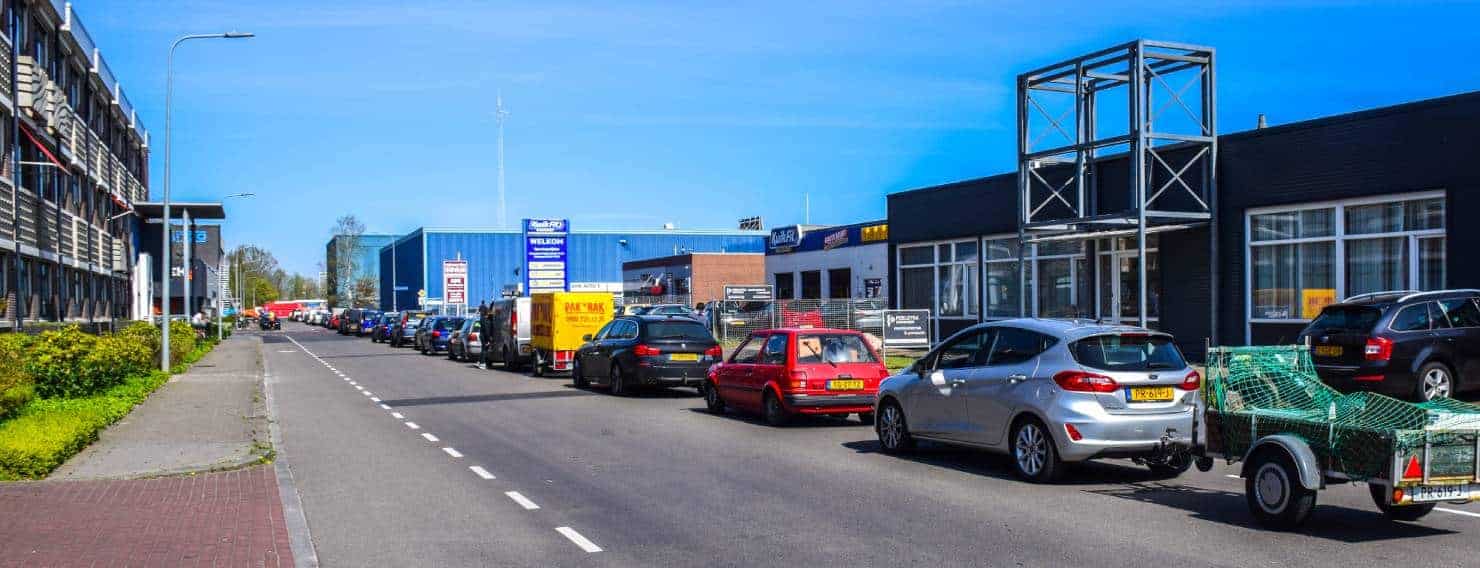We have learned to work at home and have gotten rid of traffic jams. Are we going to continue this after the corona crisis? This was the question on a webinar last week.
Massive home improvements under corona became visible through long queues in front of the dumping stations. (Photo: Gronings Dagblad)
Maurits Groen, a consultant in sustainable business, argues that the corona crisis presents a unique opportunity to leave our old habits – such as commuting, flying everywhere for holidays and going to conferences – behind. Habits are hard to change but after months of living with the coronavirus, we have seen that we can do things differently. Will we keep this up though?
There is a good chance that our emissions will be even higher after the corona crisis, asserts climate psychologist and Director of the Energy Transition Lab at TPM, Dr Gerdien de Vries. She puts forward four reasons.
- During the corona crisis we have adopted habits that are not really sustainable. Just think about the garden heaters, jacuzzis and swimming pools sold. We have shopped online more and have had food delivered more often. We have done home renovations and the queues at the municipal dumps and recycling centres have grown long. We have separated less waste. Once you have gotten used to not recycling, it’s hard to get back to it.
- People believe that they are doing things right and are sticking to the coronavirus rules. As they have been ‘good’ with the rules, they believe that this gives them carte blanche to be sloppy about sustainability. This is a known psychological effect called moral licencing. When the corona crisis is behind us, you really want that family holiday in Bali. You may not have done it two years ago for climate reasons, but now you believe that you deserve it.
- People can also knowingly ignore the rules. This is happening now in the #ikdoenietmeermee (I’m not doing it anymore) movement against the corona regulations. People don’t want their freedom to be limited anymore, and this could cost sustainability dearly.
- People are reassessing their values. They may have always put sustainability high on their agenda, but sustainability has dropped down the list in the corona crisis. Safety and comfort have become more important. People are chucking their principles overboard and buying cars. A second-hand car or perhaps an electric one, but a car nevertheless. People are less preoccupied with sustainability and are more preoccupied with corona.
De Vries was asked to put forward arguments against Maurits Groen’s sustainability message. Is she really that sceptical? “I understand that it’s good to question things, but I really don’t know. Human behaviour is so unpredictable. I have no idea.”
- The Social Innovation in the Energy Transition (SIET) held a webinar on 18 September 2020 entitled ‘Energy Transition after Covid-19’ with Maurits Groen and Gerdien de Vries.
Do you have a question or comment about this article?
j.w.wassink@tudelft.nl


Comments are closed.